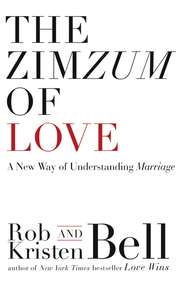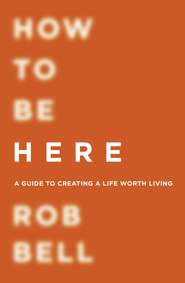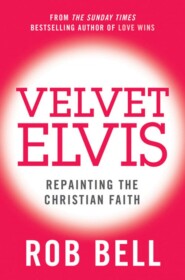По всем вопросам обращайтесь на: info@litportal.ru
(©) 2003-2024.
✖
The Love Wins Companion: A Study Guide For Those Who Want to Go Deeper
Автор
Год написания книги
2018
Настройки чтения
Размер шрифта
Высота строк
Поля
Schuller: What I hear you saying is that it’s possible for Jesus Christ to come into human hearts and souls and lives, even if they’ve been born in darkness and have never had exposure to the Bible. Is that a correct interpretation of what you’re saying?
Graham: Yes, it is, because I believe that. I’ve met people in various parts of the world in tribal situations who have never seen a Bible or heard about a Bible and never heard of Jesus, but they’ve believed in their hearts that there was a God, and they’ve tried to live a life that was quite apart from the surrounding community in which they lived.
Schuller: I’m so thrilled to hear you say this. There’s a wideness in God’s mercy.
Graham: There is. There definitely is.
We should not be surprised that one of the greatest evangelists in the history of the church thought along these lines. As someone who had spent a career presenting the gospel to non-Christians, Graham had to think deeply and thoroughly about the logic of God’s salvation. So should we.
We have included an excerpt from Oswald Chambers’s My Utmost for His Highest as another example and model of a past Christian teacher who offers counsel. In “The Temptation of Religious Success,” Chambers describes the danger of religious conformity and taking pride in Christian success. Instead, he advises that we try to seek only the Lord’s approval. This is good, but tough advice.
People have very personal stories about how they came to accept Jesus or why they’ve rejected him. The questions, Bible studies, exercises, and readings in this chapter are designed to dig into the various claims different Christian groups make about what salvation is and the variety of ways to accomplish it, allowing you to explore more fully what you think the Bible teaches on this core issue. Before the group exercise and discussion questions, we have included a Bible study showcasing just how much the Bible embraces and models the practice of asking questions; this is followed by David Dark’s reflections on the theme of his book, The Sacredness of Questioning Everything, which we excerpt.
Bible Study: A God Who Loves Questions (#ulink_596328cb-ba0b-5bf2-998d-9c950d9c3895)
Many people are afraid to question their faith, having been taught that this is tantamount to either rejecting or losing one’s faith. The best evidence against this line of thought is the Bible itself, in which both God and all the main characters ask many, many troubling questions. Asking questions is, in fact, a means God often uses to help us rid ourselves of limited and wrongheaded notions about God, so that we catch a larger and expanded vision of who we worship, which this survey of the Bible’s use of questions reveals:
God [to Adam and Eve]: Where are you? . . . Who told you that you were naked? Have you eaten from the tree that I commanded you not to eat from? (Gen. 3:9–11)
Cain: Am I my brother’s keeper? (Gen. 4:9)
God: What have you done? (Gen. 4:10)
Abraham: Will a son be born to a man a hundred years old? Will Sarah bear a child at the age of ninety? (Gen. 17:17)
God: Why did Sarah laugh and say, “Will I really have a child, now that I am old?” Is anything too hard for the LORD? (Gen. 18:13–14)
Moses: Suppose I go to the Israelites and say to them, “The God of your fathers has sent me to you,” and they ask me, “What is his name?” Then what shall I tell them? (Exod. 3:13)
Job: Why does the Almighty not set times for judgment? Why must those who know him look in vain for such days? (Job 24:1)
God: Who is this that obscures my plans with words without knowledge? Prepare to defend yourself; I will question you, and you shall answer me. Where were you when I laid the earth’s foundation? Tell me, if you understand. Who marked off its dimensions? Surely you know! Who stretched a measuring line across it? (Job 38:2–5)
Jeremiah: How long will the land lie parched and the grass in every field be withered? Because those who live in it are wicked, the animals and birds have perished. Moreover, the people are saying, “He will not see what happens to us.”
God: If you have raced with people on foot and they have worn you out, how can you compete with horses? If you stumble in safe country, how will you manage in the thickets by the Jordan? (Jer. 12:4–5)
Habakkuk: How long, LORD, must I call for help, but you do not listen? Or cry out to you, “Violence!” but you do not save? Why do you make me look at injustice? Why do you tolerate wrongdoing? (Hab. 1:2–3)
Expert in the law: Teacher, what must I do to inherit eternal life?
Jesus: What is written in the Law? How do you read it? (Luke 10:25–26)
Jesus: Who do people say I am?
Disciples: Some say John the Baptist; others say Elijah; and still others, one of the prophets.
Jesus: But what about you? Who do you say I am? (Mark 8:27–29)
Jesus [to the Twelve]: You do not want to leave too, do you?
Peter: Lord, to whom shall we go? (John 6:67–68)
Jesus: You of little faith, why are you so afraid? [Then he got up and rebuked the winds and the waves, and it was completely calm.]
Disciples: What kind of man is this? (Matt. 8:26–27)
Jesus [on the cross]: Eli, Eli, lema sabachthani? (which means “My God, my God, why have you forsaken me?”). (Matt. 27:46)
Jesus: Simon son of John, do you love me more than these [fish]?
Peter: Yes, Lord, you know that I love you.
Jesus: Feed my lambs. . . . Simon son of John, do you love me?
Peter: Yes, Lord, you know that I love you.
Jesus: Take care of my sheep. . . . Simon son of John, do you love me?
Peter: Lord, you know all things; you know that I love you.
Jesus: Feed my sheep. (John 21:15–17)
Jesus: Saul, Saul, why do you persecute me?
Saul/Paul: Who are you, Lord? (Acts 9:4–5)
Paul: Are you so foolish? After beginning with the Spirit, are you now trying to finish by human effort? Have you experienced so much in vain? (Gal. 3:3–4)
James: Has not God chosen those who are poor in the eyes of the world to be rich in faith and to inherit the kingdom he promised those who love him? But you have dishonored the poor. Is it not the rich who are exploiting you? Are they not the ones who are dragging you into court? Are they not the ones who are blaspheming the noble name of him to whom you belong? (James 2:5–7)
John the letter writer: If any one of you has material possessions and sees a brother or sister in need but has no pity on them, how can the love of God be in you? (1 John 3:17)
Group Exercise: Knowing Your Story (#ulink_eac98e6a-034c-5714-9700-00916d371e7e)
Before engaging in the discussion questions below, take time to reflect on your own experiences and beliefs about conversion and salvation. How have you understood the role of conversion and salvation in your life? In the lives of others you know? What has been attractive about the idea of being “saved”? What has raised questions for you? What has seemed false? Spend time before the meeting writing down your own story about why you have embraced or rejected Jesus. Diagram or describe how you believe people get “saved” and what that means.
At the meeting, split up in groups of two or three and take the time to share each other’s stories about being saved. After each person’s story, the others in the group should provide feedback and reactions.
After everyone has shared their story, ask each other: How are our stories similar? How are they different? How did hearing others’ stories shape or change how you think about what God’s love and salvation might be about?
Discussion Questions (#ulink_a0a4d602-59c5-572e-995f-be1635ee868e)
1 Before reading this book, how did you think of heaven and hell?
2 Do you believe God invites us, or even welcomes us, to discuss and debate the big questions of faith, doctrine, and the Bible?
3 Do you think Christians can know who does and who does not go to hell?











